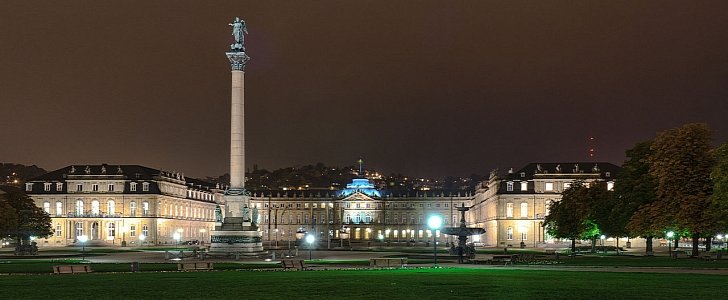Stuttgart, the German town where Porsche and Mercedes-Benz have their headquarters, has announced an intention to ban some diesel cars from its center during heavy pollution.
The temporary ban would focus on diesel-engined vehicles that do not comply with the Euro 6 emission standard, which was introduced in Europe in 2014. The decision would be applied in 2018, and its the ban would be effective only during periods of high pollution.
As DW notes, only about one in ten diesel-engined vehicles in Germany meet the Euro 6 emission standard. Once the ban is started, it could make some owners of older diesel-engined vehicles stop driving their cars in the city of Stuttgart. Ultimately, they might be interested in selling them in search for a vehicle that would comply with the new regulations.
Stuttgart is an industrial city, and it regularly reports particulate levels higher than the European Union’s designated safe levels. Moreover, officials are also planning to impose lower speed limits, while public transport would be improved.
The city has a population of approximately 600,000 people, and the residents will benefit from new cycle lanes to ease congestion.
The last air pollution alert issued in Stuttgart took place on January 9, when the city’s air quality monitoring stations noted 78 micrograms of fine particulates per cubic meter.
The figure that was registered is significantly higher than the EU’s limit, which is set at 50 micrograms per cubic meter. Once the safe limit is exceeded, the air quality is considered lower than the level deemed safe, which could lead to health issues for the people residing in the town.
In the long term, high levels of fine particulate matter in the air can lead to lung cancer for people exposed to the lower quality air. Germany’s elevated levels of fine particulates are attributed to a large number of older diesel-engined cars on its roads, which are a cause for concern to the European Council.
As DW notes, only about one in ten diesel-engined vehicles in Germany meet the Euro 6 emission standard. Once the ban is started, it could make some owners of older diesel-engined vehicles stop driving their cars in the city of Stuttgart. Ultimately, they might be interested in selling them in search for a vehicle that would comply with the new regulations.
Stuttgart is an industrial city, and it regularly reports particulate levels higher than the European Union’s designated safe levels. Moreover, officials are also planning to impose lower speed limits, while public transport would be improved.
The city has a population of approximately 600,000 people, and the residents will benefit from new cycle lanes to ease congestion.
The last air pollution alert issued in Stuttgart took place on January 9, when the city’s air quality monitoring stations noted 78 micrograms of fine particulates per cubic meter.
The figure that was registered is significantly higher than the EU’s limit, which is set at 50 micrograms per cubic meter. Once the safe limit is exceeded, the air quality is considered lower than the level deemed safe, which could lead to health issues for the people residing in the town.
In the long term, high levels of fine particulate matter in the air can lead to lung cancer for people exposed to the lower quality air. Germany’s elevated levels of fine particulates are attributed to a large number of older diesel-engined cars on its roads, which are a cause for concern to the European Council.

